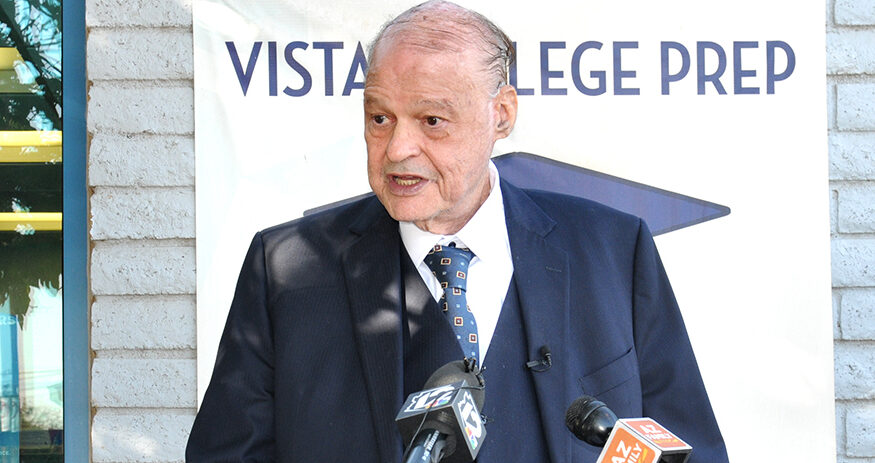State gets $34.8M grant to expand charter schools
Howard Fischer, Capitol Media Services//December 4, 2024//
State gets $34.8M grant to expand charter schools
Howard Fischer, Capitol Media Services//December 4, 2024//
Arizona is getting $34.8 million in federal funds to help create and expand charter schools in the state.
Under the program, up to $300,000 would be available to nonprofit organizations hoping to set up a new school as an alternative to traditional public schools. Funds also would be available to existing charter schools to expand their operations.
State schools chief Tom Horne, whose agency is administering the grant, figures that amount of money in the grant is enough to establish 24 new charter schools and expand an additional 23, which is enough, he figures, to serve about 10,000 students.
The idea, according to Mark Francis who works with the state Department of Education on charter issues, is not to permanently subsidize these schools but instead to get them on their feet. He said that includes everything from hiring specialists to plan the program to buying the necessary chairs and desks.
But Francis said that, once operating, they are expected to be self-supporting with the aid they get from the state.
Charters, which are technically public schools in Arizona, get an average of $9,313 per student in state funds, according to the Department of Education. That compares with $8,086 for traditional public schools.
On one hand, the state does not fund transportation expenditures for charter schools. But the state does provide some additional dollars to charter schools because, unlike traditional public schools, they cannot seek to raise local taxes.
In both cases, however, the schools may not charge tuition.
Francis said not just anyone who hopes to open a charter school is eligible.
Aside from screening applicants for their qualifications to operate a school, he said the conditions of the funds, which are set by the federal government, require that the school be designed to serve “educationally disadvantaged” communities. Francis said this means that 30% of students come from homes that qualify for free or reduced-price meals or the same percentage are from minority communities.
He also said that schools designed to serve children with special needs, such as those with autism or with a disability, also would qualify.
What that also means, Francis said, is that these funds are open to many different geographic areas of the state.
The additional dollars to open more charter schools come as many traditional schools are struggling with declining enrollment. Some districts are even being forced to shutter schools.
Horne, however, said he does not see the expansion of the charter school system – there are more than 600 in Arizona – as the cause of those changes.
“The charter schools in Arizona go back to the 1990s,” he said. And Horne, who said he was a champion of charter schools when he was a state legislator, said they serve a legitimate purpose.
“Even a good district school may not necessarily meet the needs of all the students,” he said. “And so the parents should have the ability to find a school that does meet those needs.”
And, just like traditional schools, any student can apply, with charter operators unable to set admission requirements.
But traditional schools cannot turn away students who live within their district. Charter operators, however, can limit admissions, using a lottery system to determine who gets in.
Still, there are some differences.
A person does not need to be a certified teacher to work in a charter school, though the law bars a charter school from hiring someone whose teaching certificate has been surrendered or revoked.
Francis said applications are available now for those wishing to apply for a grant. He said the process is designed so that, if approved, a new or expanded school could be open by this coming August.














































